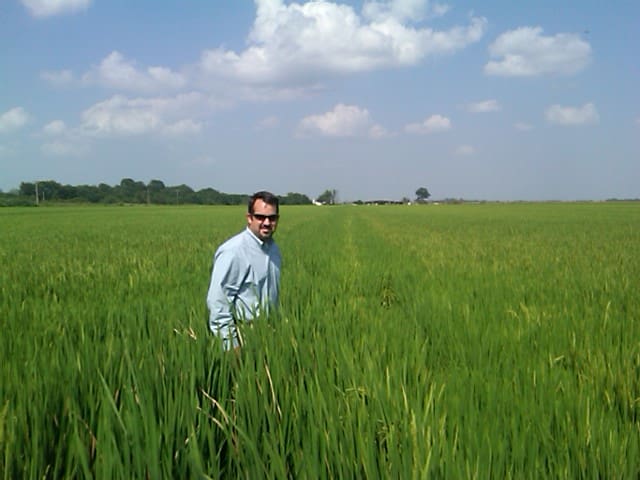Unless you’re an aficionado of blues music, your first summer vacation impulse might not be to head down to the Mississippi Delta in August. But, if you happen to head south from Memphis and pass the gaming mecca of Tunica, the flat landscape slowly starts to yield the lushest, greenest fields you are likely to see. This region of Mississippi, along with parts of Arkansas and Louisiana, form America’s long-grain rice breadbasket – the source for nearly all of the rice that is likely to pass American dinner tables.
But, despite appearances, all is not well here because what’s coursing below those brilliant green fields are millions upon millions of gallons of fresh water. In fact, it takes more water to grow rice per acre than it does to raise another popular product of the region – catfish.
Take that in for a minute – more water is needed to grow rice than to grow a fish.
And that’s where you’ll find a serious problem as throughout many parts of Mississippi and particularly Arkansas the water table upon which those famers rely is dropping…precipitously. Anecdotal evidence suggests that farmers in some regions who used to find water 20 feet from the surface are now digging up to 1000 feet to access the water their crops need. And scientific evidence is not much more reassuring with serious water shortages predicted in the next 10-20 years with the actual day of reckoning depending on the location.
The issue of water is a complicated one that can’t get full treatment in a blog post, but suffice to say it’s a shared problem for anyone drawing off of a particular aquifer. If I try to save water and you waste it, we’re ultimately both going down. In truth, addressing the water issue in the Mississippi Delta calls for a collective impact approach and while a viable collective impact approach has not yet emerged, there is perhaps a surprising stakeholder making significant investments aimed at addressing the water issue in the region – the United States government.
The program that I’m referring to is part of the USDA’s Natural Resources Conservation Service, which is designed to support the implementation of different conservation activities amongst farmers. The program is called the Environmental Quality Incentive Program (EQIP) of which the Agricultural Water Enhancement Program (AWEP) is a part.
Within the AWEP program, the federal government provides matching grants to help offset the costs of farmer water management investments – side inlet irrigation, tailwater recovery, pump timers and flow meters among other items. Many of these are technically speaking simple yet they yield considerable water savings and the government funding is helping make the investments affordable for farmers. And these are not small efforts – current EQIP funding, according to the USDA, is worth roughly $500M, covers approximately 7.5 million acres through nearly 25,000 contracts.
Far from just wielding the regulation stick, governments can and should create the conditions needed for shared value to flourish. Imagine, for instance, if the USDA called for matching funds from the companies that market and sell rice in the United States to expand the coverage of water saving measures or even more simply used their convening power to launch a collective impact approach by which committed stakeholders actually addressed the water problem in the Mississippi Delta.
Examples like this are great examples of the proactive and beneficial role that governments can play in shared value and in helping improve the business environment. We’re always looking for more examples – please let us know other compelling examples of government programs which proactively support businesses and shared value strategies.

